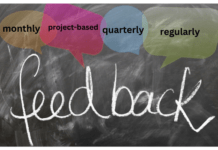Leaders need to work on creating an inclusive culture, while rooting out exclusionary behaviours.
Formal programmes and policies aiming to cultivate inclusion must match up to the daily reality of employees — connecting the dots between what the organisation says it is doing and what employees feel they are experiencing. A recent report by Catalyst, ‘The Day-To-Day of Experiences of Workplace Inclusion and Exclusion (Day-to-Day)’, revealed that business leaders need to be aware of the fact that experiences of inclusion and exclusion often coexist in day-to-day interactions and they need to work on both— creating an inclusive culture, while rooting out exclusionary behaviours.
Through its cross-regional study, Day-to-Day captures the voices of employees across 42 organisations in five countries – Canada, China, India, Mexico and the United States – to better understand their everyday interactions of workplace inclusion. The research discovered three critical lessons about employee experiences: (1) inclusion and exclusion happen at the same time for many employees; (2) inclusion is really difficult to grasp and define; and (3) exclusion is powerful and easy to recall.
The report suggests that leaders must be equipped with skills and resources to put the necessary systems in place to shift their work culture. It also offers actionable recommendations to help build inclusive work cultures.
The research shows that employees find it difficult to define inclusion. The findings suggest an inability to fully grasp not only what the outcome of inclusion feels like, but also the ways in which inclusion is realised. As a result, inclusion can easily be taken for granted or overlooked. However, experiences of workplace exclusion are powerful and, unlike inclusion, keenly visible. Interviewees more readily recalled and related stories of workplace exclusion than inclusion.
For instance, one of the women interviewees from India said, “The basic attitude towards a woman at the workplace is that she is there because she’s looking for a hobby. This is not really her main thing. Whereas, a man is working because that is what he has to do. A woman is working because she’s kind of indulging herself.” Similarly, a woman from China said, “If a woman is very strong; is very capable at the workplace, in China ….she will probably not be well accepted by the society. They will say, “Oh, this woman is not like a woman [should be].”
The report states that when an employee has repeated experiences of exclusion, it can result in a reduction in productivity, engagement, and even in the employee’s own sense of self-worth. This can cost dearly at the individual, team, and organisational levels. To interrupt exclusionary behaviours and avoid this disconnect, leaders must promote authentic action and dialogue; and make sure the connection between what they say and what they do is crystal clear to all the employees.
Companies often institute formal practices and policies to promote inclusion, but these are not always made operational as informal norms, the report states. To close this gap, leaders must humanise their efforts across a broader cross-section of employees, creating visible, personal examples of what inclusion looks like in day-to-day interactions. This involves finding ways for employees to take ownership of inclusion efforts. For instance, employees could act as inclusion ambassadors, who work collectively to drive and role model change.
“Leaders must understand that diversity is a fact, but inclusion is a choice. It is about making small shifts every day in our behaviour to help employees feel more included at work – amplifying their experiences of inclusion,” said Deborah Gillis, president and CEO, Catalyst.
To drive inclusive work cultures, leaders must help employees feel supported, heard, and valued—both in acknowledging and overcoming the negative and in celebrating and amplifying the positive. In doing so, employees can navigate their day-to-day experiences in an authentic way and learn by the example leaders set.
The Day-To-Day report is produced by the Catalyst Research Centre for Corporate Practice. The Centre, supported by The Coca-Cola Company, conducts research distinguishing sound talent management strategies from programmatic fads, and documents best practices. This study is part of the Culture Matters global series, focussing on how organisations can build inclusive cultures.
Value our content... contribute towards our growth. Even a small contribution a month would be of great help for us.
Since eight years, we have been serving the industry through daily news and stories. Our content is free for all and we plan to keep it that way.
Support HRKatha. Pay Here (All it takes is a minute)




































